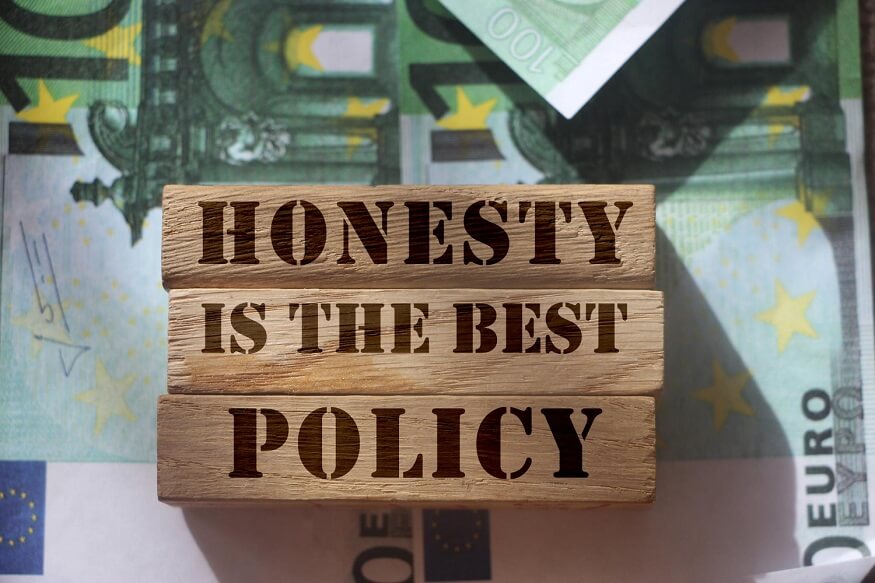“Honesty is the best policy” is probably the first proverb we all hear during our childhood. However, as age passes by, the value of honesty and its importance starts getting questioned. Many of us start using lies and deceit to get what we want as early as possible and without putting in the hard work required. This sentiment manifests itself in increasing crime rates and negativity in society. It is important to instill the importance of honesty and integrity among kids from a very early age.
Below are some ways to teach the importance of honesty to kids.
Create awareness of consequences
One of the first things to address is the question “Why”. Why is honesty such a big deal? The best way to address this is by creating awareness about the consequences of dishonesty. We do not necessarily need to drive home the point with fear, by citing examples of punishable crimes. Children must also know the societal implications of being dishonest. We can talk about trust and reputation in society that comes as a result of being honest and a person with integrity. People prefer working with honest individuals and making friends with those who are honest, honest individuals are trusted and respected in society. Dishonest people are seen as unreliable and usually are alienated in society. Dishonesty might seem to yield rewards in the short run, but karma always hits back in the long run. The consequences of dishonesty could be disastrous. Children need to understand the pros and cons of honesty.
Virtue stories
The best way to communicate the virtue of honesty is through stories. Stories of honest and dishonest individuals are abundant in our mythical literature and historical folklore. Many of us have heard stories of Satyawaadi Harish Chandra during our childhood. To make it more real and relatable for the children, parents can pick stories of contemporary individuals from our society to drive home the importance of honesty. Tell them stories of people in your social circle who were honest and how they are well-regarded and respected in society. Tell them stories of people who are dishonest and how they are not trustworthy and find themselves largely outcast from society. Stories of honesty can also be driven through superhero movies that children love these days.
Lead by example
Children are keen observers of our behaviour, and they model their actions based on the same. If they see their parents being dishonest, most likely they will pick that up too. Many of us tend to tell harmless lies on occasion. However, they might leave permanent imprints on the young minds of our children. For example, you get a call from your boss, and you tell him that you are out somewhere, while you are at home. This seemingly harmless lie can deeply influence the mind and perception of your child about honesty and how it can be subverted depending on circumstances. Parents and family members must be mindful that children are watching their every move. Parents need to lead by example if they want their children to imbibe the value of honesty.
Reinforce honesty
Rewarding honesty in behaviour can act as a strong reinforcement of children’s belief in honesty as a virtue. Keenly observe situations where they had an incentive to be dishonest, but they still chose honesty. Look for situations where they follow through on their promises, keep their word, take care of other people’s things, etc. These are all indications of them imbibing the virtues of honesty. Appreciate them magnificently when they demonstrate such behaviours and shower them with generous rewards. Find opportunities to praise honesty even in others. For example, share the story of a colleague at the office and their story of honesty. Lavish generous praise on that colleague while telling this story to your children. These reinforcements if given from a young age will create a long-lasting imprint on their minds.
Intervene
If you see your child behave dishonestly, do not ignore it. Take it as an opportunity to intervene and drive home the message. Maybe even the child wants to see how to respond. Do not punish the child impulsively. Talk to the child about the mindset which led them to choose the dishonest route. Ask open-ended questions to drive home the point that why they should have chosen the honest route. While dishonesty might yield results in the short run, in the long run, it can be disastrous. Use such scenarios as teaching opportunities to drive home the virtue of honesty as a value not to be compromised.
Do not test them
Stay away from testing their conscience. Do not put them in situations where they might be tempted to lie. Avoid asking questions where being dishonest might prove to be beneficial. For example, if you see a broken toy, asking them “Did you break this?” in a stern voice might put them in a position where they might choose to lie. Once they get away with it, they will pick up being dishonest as a habit. Kids typically lie out of fear of getting into trouble, whether in class or at home. Try not to put kids in such situations.
Take input from teachers
Students spend a significant amount of time at school away from the watch of their parents. To keep a check on the honesty in their behaviour, it is advisable to seek input from their teachers on their behaviour. In case of any concerns, teachers and parents need to work in tandem to instill the virtues of honesty in the students.
Create honest surroundings
Children learn a lot and get influenced by people in their surroundings. These people could be parents, other family members, relatives, friends, classmates, and teachers. As much as possible, ensure children hang out with those who follow the code of honesty themselves. Being around honest people can rub off on them as well.
Also Read: Encourage Social Development in Children
Enrol your child with EuroSchool today!









